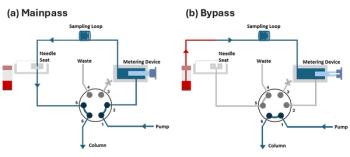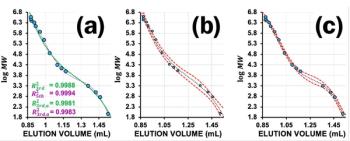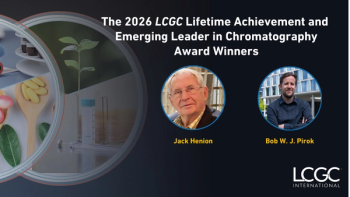
Calls for Nominations for 2019 CACA Young Investigator Award
The Chinese American Chromatography Association (CACA) invites nominations for the 2019 CACA Young Investigator Award.
The Chinese American Chromatography Association (CACA) invites nominations for the 2019 CACA Young Investigator Award.
The 2019 CACA Young Investigator Award, sponsored by Mac-Mod Analytical, recognizes outstanding contributions to the development of separation science and its applications, especially in the field of chromatography. The award is open to all CACA members who are within 10 years of receiving their highest degree at the time of the award session.
All application packages for the Young Investigator Award will be evaluated by the CACA Awards committee. Applicants are judged on the originality and overall quality of research, significance to the advancement of separation science, and other supporting factors. Measures of the impact of the work include publications, presentations, patents, and leadership roles at their research fields or place of business.
To apply to this award, an application package must consist of the following items:
- A cover letter summarizing the applicant’s contribution to the field of separation science
- A resume that includes contact information, academic credentials, work experience, and a publication list
- A maximum of three supporting letters from mentors, supervisors, colleagues or other experts in separation science.
- A headshot photo
Candidates can be self-nominated or nominated by any separation science experts in the field. The deadline for the 2019 CACA Young Investigator Award application is December 31, 2018. Awardees will be selected by the CACA Awards Committee and notified by January 30, 2019. Details of CACA and its free membership are listed at
The award will be presented at the 2019 Pittcon Conference, to be held March 17–21, 2019, in Philadelphia, Pennsylvania. The awardee will give a presentation in a CACA career workshop at Pittcon 2019. A $1000 cash award and a plaque will be presented with the award.
Please send the nomination materials electronically (a single PDF file is required) to:
To register as a member by joining the CACA group on LinkedIn, go to: http://www.linkedin.com/groups?gid=1857030. There is no membership fee.
Newsletter
Join the global community of analytical scientists who trust LCGC for insights on the latest techniques, trends, and expert solutions in chromatography.




